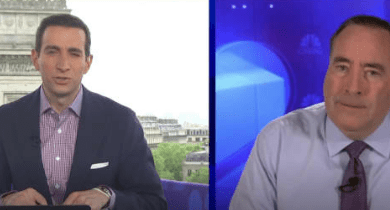Unraveling the Green Veil: Lawsuit Exposes JBS’s Dubious Net Zero Claims and the Larger Battle Against Meat Industry Deception”

As public awareness of climate change increases, JBS so does the demand for environmentally friendly consumer goods with lower emissions. In response to the growing concern about their climate impact, major meat producers, such as the world’s largest meat company, the Brazilian multinational JBS, claim to provide low-carbon meat, pledging to achieve net zero emissions by 2040. However, the validity of such claims, particularly in the case of JBS, is questionable.
READ: New York Businesses Ordered to Require Masks Indoors or Vaccine Proof
JBS
The New York Attorney General, Letitia James, has taken legal action against JBS, alleging that the company’s promises of emissions reductions are not only unsubstantiated but also unattainable. The lawsuit contends that JBS’s misleading claims could potentially mislead environmentally conscious consumers into purchasing highly polluting meat products and may inadvertently encourage increased consumption of beef.
While some critics may view the lawsuit as anti-free market, it is, in fact, a move to ensure transparency and accuracy in the market. Accurate information is crucial for functioning markets, allowing consumers to make informed choices. Corporate deception undermines the market’s ability to offer goods that align with consumer preferences.
If successful, the lawsuit could result in financial penalties for JBS and serve as a warning to other food companies about the costs of greenwashing. In an era where the connection between livestock production and climate change is often downplayed, the lawsuit could also highlight the prevalence of deception within the livestock industry to the public and policymakers.
JBS, a major player in the meat industry, has faced criticism for its significant environmental impact. Livestock, particularly beef, is a major contributor to greenhouse gas emissions, deforestation, and other environmental issues. JBS, with reported emissions surpassing 71 million tons of carbon dioxide equivalent in 2021, faces challenges in substantiating its net zero commitment, as it lacks a comprehensive understanding of its own emissions.
The lawsuit draws attention to the complexity of corporate emissions reporting, particularly in the case of meat processors like JBS, where scope 3 emissions, including factors like feed crops and deforestation, can constitute a significant portion of overall emissions. JBS has admitted to the difficulty of accurately calculating its scope 3 emissions, indicating a lack of a reliable baseline for achieving net zero.
Moreover, the lawsuit alleges that JBS made net zero commitments without a clear plan for achieving them. Despite claims of investing in regenerative farming practices, the vague nature of the term “regenerative” and the lack of a clear definition raise doubts about its efficacy in significantly reducing emissions.
The case against JBS reflects a broader trend in holding food businesses accountable for greenwashing and protecting consumers from exploitation of their good intentions. While industries like plastics and fossil fuels have faced scrutiny for greenwashing, the meat industry has witnessed a parallel phenomenon known as “humanewashing.” Misleading claims about humane animal treatment have shifted to climate-friendly messaging as public attention focuses on the carbon emissions of animal agriculture.
The lawsuit’s outcome will hinge on whether the attorney general can prove that JBS’s claims misled reasonable consumers. JBS, in turn, must substantiate its specific claims about achieving net zero, a challenging task given the lack of verifiable evidence. The case against JBS serves as a reminder that companies engaging in deceptive advertising may face legal consequences, signaling to the livestock industry that there are repercussions for dishonest climate commitments.
This lawsuit against JBS goes beyond the company itself, highlighting the need for regulatory attention to prevent greenwashing in the absence of clear commitments. With JBS’s extensive history of legal issues and environmental impact, the case emphasizes the importance of transparency and accountability in the meat industry. The lawsuit aims to educate the public to be cautious of sustainability claims from the livestock industry and potentially influence policymakers to reconsider special exemptions granted to animal agriculture, given its significant pollution and climate impact.




